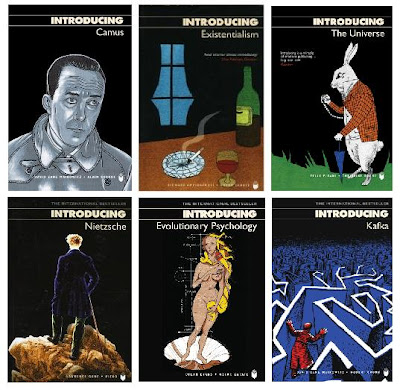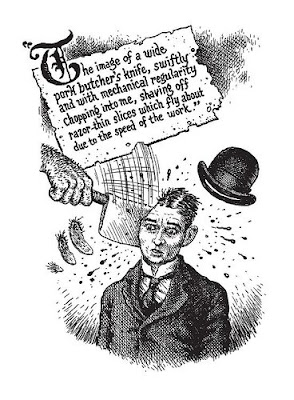In his "Autobiographical Collage"
Palm Sunday The late Kurt Vonnegut Jr. came up with the interesting idea of grading his books, not in comparison to other writers, but only in relation to his own output. As he put it:
The grades I hand out to myself do not place me in literary history. I am comparing myself with myself. Thus can I give myself an A+ for Cat's Cradle, while knowing that there was a writer named William Shakespeare.

Here are the grades he gave himself, along with my comments:
Player Piano - B
- B
His only novel I have not yet read.
The Sirens of Titan - A
- A
I agree. A fun, well-executed sci-fi parable.
Mother Night - A
- A
I would say A-, worth reading but has a few glitches.
Cat's Cradle - A+
- A+
I agree, or even say A++; his best book by far.
God Bless you Mr. Rosewater - A
- A
Really didn't do it for me, I would say B-, but perhaps I was suffering from Vonnegut fatigue at that point.
Slaughterhouse Five - A+
- A+
I agree. Rightfully celebrated as a great literary accomplishment, though not as starkly original or entertaining as
Cat's Cradle.
 Welcome to the Monkey House
Welcome to the Monkey House - B-
- B-
Sounds about right. An uneven collection of stories.
Breakfast of Champions - C
- C
He's being too harsh, I would give it a solid B, it has a lot of good ideas in it, even if it is a bit scattered.
Wampeters, Foma & Granfalloons - C
- C
I agree. A totally unnecessary collection of odds and ends.
Slapstick - D
- D
I agree. An uninteresting idea, executed poorly. His worst book.
Jailbird - A
- A
Again, Vonnegut fatigue. I'd give it a solid B.
Palm Sunday - C
- C
It's kind of funny that he gives such a low grade to this book as he's writing it, and mentioning it in the book itself (admittedly, only towards the end of the book), but I would agree. In general his novels are much better than his autobiographical essays or "collages".

Vonnegut wrote ten more books after
Palm Sunday, but did not grade them on the same scale, so I can only give you my assessment of them:
Deadeye Dick - B-
- B-
Standard mid-level vonnegut. If you're a fan you'll like it, but it's nothing special.
Galapagos - A-
- A-
Pretty good book with some entertaining literary schticks.
Bluebeard - A
- A
I really liked it, especially for its amusing depictions of American minimalist artists.
Hocus Pocus - A
- A
Smart and Funny. His best book from his later period.
 Fates Worse than Death
Fates Worse than Death - B-
- B-
Like
Palm Sunday, a collection of somewhat autobiographical writings, and thus not all that great.
Timequake - A-
- A-
It's nice to see Vonnegut's famous creation Kilgore Trout again, and in such a central role, but the book is a bit creaky.
God Bless you Dr. Kevorkian - B-
- B-
Originally broadcast on the radio. Very brief, rarely insightful, and only occasionally entertaining.
Bagombo Snuff Box - C+
- C+
A collection of less successful early stories not included in
Welcome to the Monkey House.
A Man Without a Country - C
- C
A rehash of old ideas and jokes (from
Timequake,
Hocus Pocus,
Slaughterhouse 5 and others) some of them updated to fit the current events of the time (e.g. Bush's War on/of Terror).

I haven't read Vonnegut's posthumous
Armageddon in Retrospect
, but since it's a collection of essays I probably wouldn't have ranked it that high anyway.
Look at the Birdie ,
, a collection of fourteen previously unpublished short stories, doesn't seem too promising either - if Vonnegut deemed these stories unworthy of inclusion in the two previous collections, which had some not-so-great stories, they must really be sub-par.















![Darkness at Noon [Books That Have Changed Man's Thinking]](https://images.gr-assets.com/books/1327243764s/13349640.jpg)






